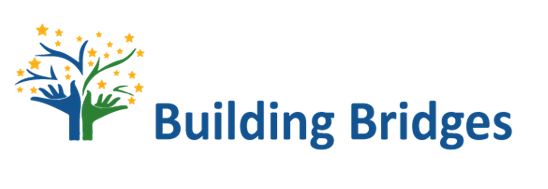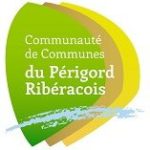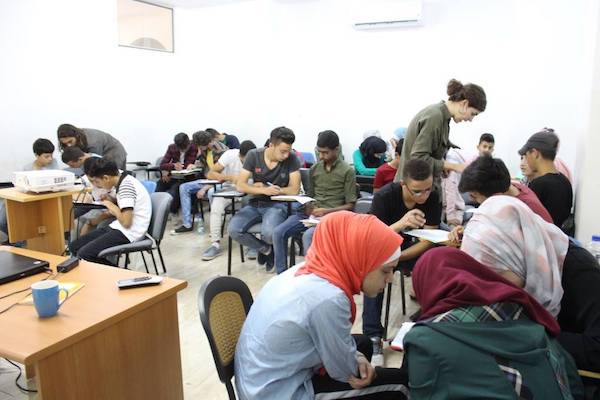Erasmus+ KA2 CONSORTIA
SMALL-SCALE PARTNERSHIP
This project is developed within the framework of an Erasmus+ Small Scale action, by two European organisations: Asociación Building Bridges (Spain), and Communauté de Communes du périgord Ribéracois (France).
PARTNERSHIP

Asociación Building Bridges
Building Bridges Cultural Association was founded in 2008 to promote a spirit and community integration and to foster European culture awareness among the youth. Building Bridges is presented at the local level as a tool to assist and support the implementation of non-formal education courses and improving knowledge of European labour system practices. We organise courses, visits and meetings, European events for public agencies on policies concerning youth , mobility, sports , local economic development, culture and cooperation with developing countries. We believe that transnational experience could offer young people the opportunity to grow within a European dimension through their personal and professional skills , so that they could become main actors of the European future.

Communauté de Communes du Périgord Ribéracois
The Communauté de Communes du Périgord Ribéracois ( CCPR) is a public administration which is located in the Dordogne, in the green Périgord. It is located between Périgueux and Angoulême. The Dordogne is one of the departments with the oldest population and one of the poorest. This community includes 44 villages with populations ranging from 65 to 4000 inhabitants per village, very rural villages and a living pool of 20,000 inhabitants.
CCPR manages directly 23 nursery and primary schools for many in RPI which accommodate 1280 students, 15 out-of-school receptions and 4 leisure centers. There is a school group in Ribérac in which there is a college/High school/professsional High school and another college in Tocane. There are two Family and Rural Houses for young people aged 14 to 18 in alternance training.

Teachers
Teachers & Staff of partner organisations

Centres
Education Centres and third-party stakeholders

Adult learners
With fewer opportunities that are at a disadvantage
Start your MOOC for free
Decide!
The e-Merging project will create a platform for members to create online learning courses and publish a methodological guide they will develop in order to guide other rural education centres in the effective use of digital tools in their daily activities.

I am not a partner, can I join?
The knowledge and competences acquired in the e-Merging project are horizontal applicable to any sector, being practical on offering an experiential learning opportunity and giving them an insight into topics that are not their usual first choice of discussion like digital tools for rural Education Centres in the era of digitalisation after COVID.
The learning experience tallies with the Erasmus+ priorities to make Adult teachers and the students more resilient, professional and relevant, closer to mainstream education towards better employability and competitiveness.
The project relies on structured and constructive networking at a local and at European level. This will give to e-Merging a stronger social dimension. The partners will build a community of players around it and this beyond the partnership. This is so during the project lifetime in the local activities and later on beyond the project lifetime and in other countries not represented in this project as part of its exploitation strategy.
Join our adventure
You are able to learn for free
With the advent of Covid-19, the Education sector has been put to the test. Many European teachers and students in Adult education sector have lost classes others are no longer able to access it. According to “Adult Learning and COVID-19: challenges and opportunities A REPORT FROM THE ET2020 WORKING GROUP ON ADULT LEARNING” (published in EPALE). COVID affected all economic sectors and society as a whole.
However, vulnerable groups have been impacted the most, thus accentuating social inequalities.
Resultant lockdowns highlighted the importance of basic skills – both literacy and digital skills – as well as key competences such as critical thinking and learning to learn skills.

Challenges
The consortia analised the challenges faced by Adult Education Centres in rural areas of Madrid and Riberacois and identified common weakness in the ability to reach those that require most attention i.e. specific vulnerable groups. For instance, the population of foreign origin may, on the one hand, lose, by emigrating, the social support they had for the use of new technologies, implying a situation at a disadvantage since they have the help of family or friends will have a enormous impact on the access, use and use of ICT.
In the longer term, there is also a need to substantially improve the quality of online and blended delivery and increase the financial resources for the sector. E-Merging also aims to increase the digital education offer.
